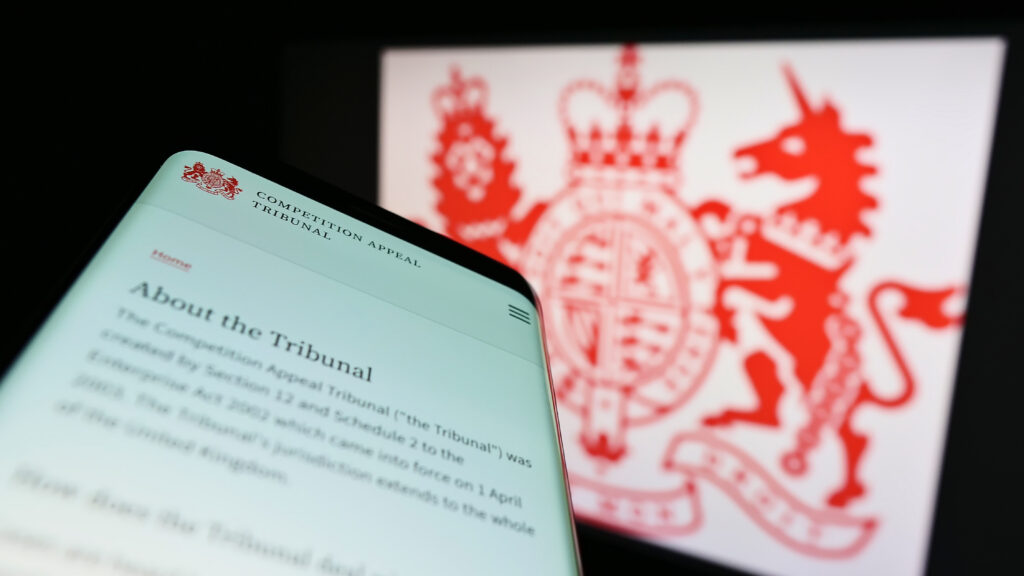Whether you’ve recently established your own business or climbed the career ladder to gain a seat on the board, taking on a director role means you’re also taking on greater legal risk for both you and your company. This is because directors are held to a higher standard than the average staff member owing to their position of authority both within their company and over it.
At Capital, we’re highly experienced in advising company directors on their role and responsibilities and the potential liability that comes with it. In this article, we explore:
- when companies can be held liable for certain criminal offences because of their directors’ actions (including considering recent legislative developments)
- the key offences where directors may be held liable in their individual capacity
- a reminder of directors’ duties
The Economic Crime and Corporate Transparency Act 2023 (ECCTA): changes to the identification principle
The ‘senior manager’ offence
Before ECCTA, a criminal offence had to be committed by what was termed as the ‘directing mind and will’ of a corporation for the company itself to be held liable. This narrow approach made it difficult for prosecutors to hold companies criminally liable through the actions of their senior staff, since it wasn’t clear which staff represented the company’s ‘mind’, with senior officers—including directors—often being excluded from this definition.
However, since ECCTA came into force in December 2023, this narrow approach no longer applies to economic crime cases. Now, ‘senior managers’ of organisations, including directors, can effectively represent the ‘mind’ of a company, as long as certain conditions are met. We outline what these are below.
Under Section 196 of ECCTA, if a ‘senior manager’ of a company—broadly defined as an individual who plays a significant role in:
a. the making of decisions about how the whole or a substantial part of the organisation’s activities are to be managed or organised, or
b. the actual managing or organising of the whole or a substantial part of those activities
2. acts within the actual or apparent scope of their authority and
3. commits an economic crime,
then the company will also be guilty of the offence.
Schedule 12 of ECCTA sets out which economic crimes this applies to and includes a long list of offences from fraud, bribery and corruption to theft and forgery. It also includes attempts, conspiracies, or any offence of aiding, abetting, counselling or procuring the commission of a listed offence.
The new ECCTA represents a significant shift in prosecutors’ ability to prove corporate criminal liability and makes it much easier to prosecute offences. Now, if a sufficiently senior individual in a company commits an economic crime whilst acting within even ‘the apparent scope of their authority’, their liability means the company can be held liable too.
This significant increase in risk for companies makes it essential that senior managers, including directors, understand what behaviour is and isn’t acceptable in their role. They also need to understand how economic crime risk presents itself, and the possible repercussions for both themselves and their company, should they be found guilty of one of the offences listed in Schedule 12.
In short, ECCTA has broadened the potential liability that companies now have for their directors, and it applies to all companies irrespective of their size or turnover.
Crime and Policing Bill
The Crime and Policing Bill proposes extending this expanded corporate criminal liability beyond just economic crimes to all criminal offences.
At the time of writing, the Bill is in its second reading in the House of Lords and looks likely to pass into law. If enacted, companies will be tied to all criminal actions of their senior managers and directors across the full spectrum of the law—extending far beyond just their economic offences.
Personal criminal liability
Directors may be prosecuted as individuals for a very broad range of offences. Compared to more junior staff, they face greater risk of exposure to some of these offences due to their seniority in their organisation or simply by holding the role of company director. We set out some of these key offences below:
Fraud and dishonesty offences
Fraud Act 2006: fraud by false representation; fraud by failing to disclose information; fraud by abuse of position; directors may be personally liable if they themselves commit fraud, or if they consent/connive to fraudulent conduct within their company.
False Accounting: where a person destroys, defaces, conceals or falsifies any account or record made for an accounting purpose, or furnishes information which to his knowledge is or may be false or deceptive.
Bribery and corruption
Bribery Act 2010: offences of bribing another person, being bribed, or bribing a foreign public official; again, directors may be held personally liable both if they themselves commit bribery, but also if they consent to/connive in this conduct.
Proceeds of crime
Proceeds of Crime Act 2002: offences of concealing, disguising, converting, transferring or removing criminal property; making arrangements in relation to criminal property; or acquiring, using and possessing criminal property; directors may also be held liable for failing to report knowledge or suspicion of money laundering.
Health and Safety/Corporate manslaughter
Health and Safety at Work etc. Act 1974: directors can be personally liable if an offence is committed with their consent, connivance or neglect.
Corporate Manslaughter and Corporate Homicide Act 2007: while liability attaches to the company, directors could still face gross negligence manslaughter charges individually should they commit a gross breach of a duty of care owed to the victim through their misconduct.
Company law offences
Companies Act 2006: failure to deliver accounts and reports: directors commit an offence where the requirements of a company to file accounts and reports are not complied with (unless all reasonable steps were taken); false or misleading statements: it is an offence to knowingly or recklessly deliver misleading, false or deceptive statements to Companies House.
Directors’ duties
In addition to the increased risk of criminal liability exposure, directors of companies are also subject to specific duties, primarily set out under the Companies Act 2006 (although there are others to be aware of) and these duties may be enforced by the company itself through the civil courts.
These duties exist because directors are in a fiduciary relationship with the company they represent, meaning they have considerable power and authority to use company assets and funds.
As a reminder, the Companies Act 2006 confirms that a director must:
- act within their powers under the company’s constitution
- promote the success of the company for the benefit of its members (see our recent article on this duty)
- exercise independent judgment
- exercise reasonable care, skill and diligence
- avoid conflicts of interest
- not accept benefits from third parties
- declare interests in proposed transactions or arrangements with the company
It’s important to note that some of these duties continue even after an individual stops acting as a director for a specific company and generally relate to acts or omissions that took place whilst they were the director.
There are also other requirements that directors should be aware of, including the duty to consider the interests of creditors (following the Supreme Court’s decision in the case, Sequana), their responsibilities in relation to the company’s accounts and records, and the duty of confidentiality owed to the company.
Forward look
This combination of directors’ duties, ECCTA and other associated legislation create an already high standard that directors must comply with. Looking to the future legal landscape, this threshold will only continue to grow: the Institute of Directors continues to promote the Code of Conduct for Directors and, as detailed above, corporate criminal liability looks likely to expand in the immediate future because of the new Crime and Policing Bill.
How can we help?
Our Business Crime and Investigations team comprises former Serious Fraud investigators and prosecutors who use their significant experience in law enforcement and in private practice to inform the advice they provide to corporates and directors. Our team can help you navigate the complex corporate and financial crime landscape, future-proof your business and mitigate against both corporate and personal liability risk through effective compliance.
Our wider Commercial Disputes team is also highly experienced in dealing with directors’ disputes, advising both directors and companies on related civil litigation issues, including in the event of insolvency.




